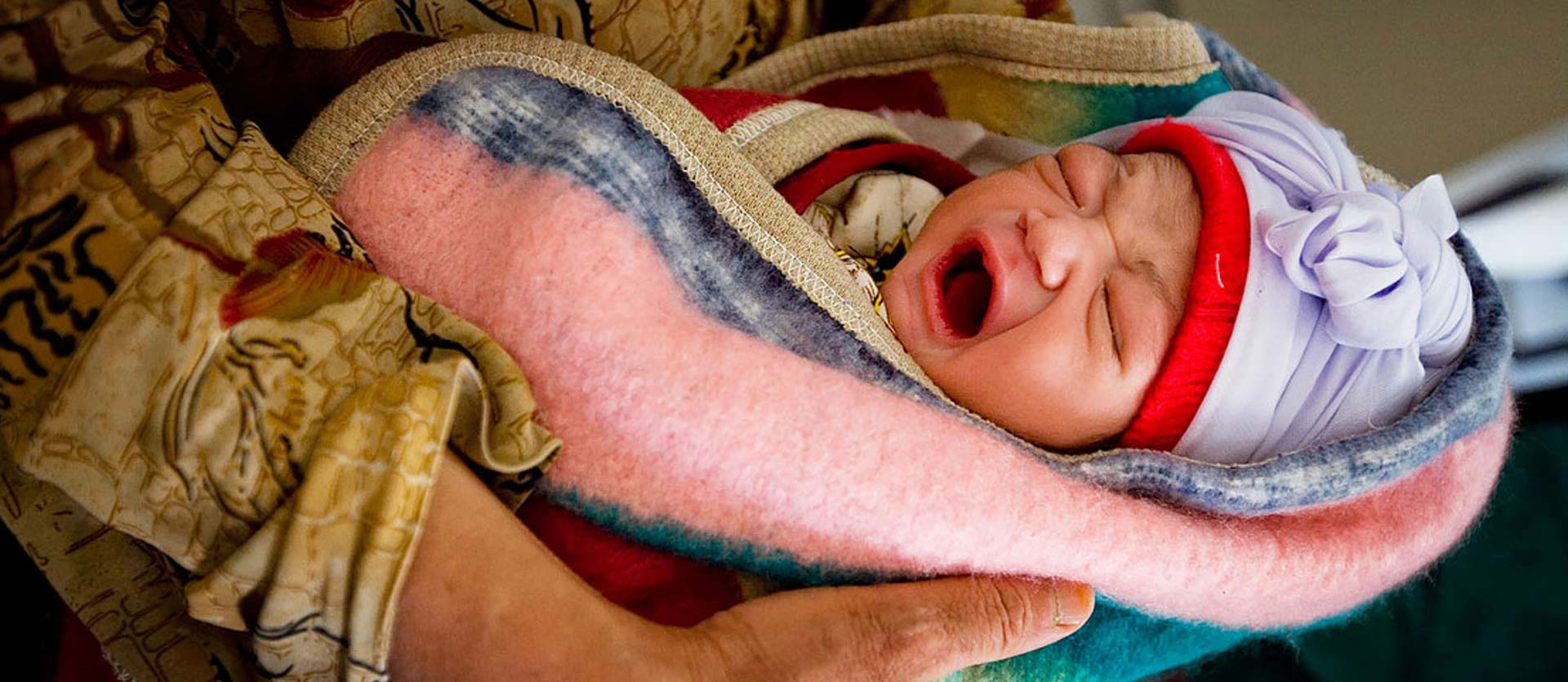![]()
Newborn Health
Despite global efforts to develop and promote high-impact interventions for newborn health, 2.6 million babies die each year within the first 28 days of life, with more than three-quarters of these deaths occurring in sub-Saharan Africa and South Asia. An additional 2.6 million babies are stillborn each year: half of these are during labor and birth, most are preventable, and nearly all occur in low- and middle-income countries. Improvements in the prevention of newborn death have lagged behind those for maternal and child health, and 45% of all under-five deaths happen during the newborn period. Yet, three-quarters of newborn deaths are preventable with simple, inexpensive, high-quality interventions.
MCSP harnessed global and country-level resources to prevent newborn deaths. This included advocacy and technical support to implement key interventions that address the major causes of newborn death — intrapartum complications, newborn infections, and complications of preterm birth. As part of an integrated package of maternal and newborn care, we focused on providing appropriate, timely, and high-quality essential newborn care on the day of birth and during the postnatal period, including:
- Newborn resuscitation to manage asphyxia;
- Kangaroo Mother Care (KMC) for premature and low birth weight newborns; and
- Newborn infection prevention and management.
To advance these critical newborn health interventions, and in recognition of the fact that many newborn deaths can be prevented through improved care of women before and during pregnancy, we emphasized integration with maternal care while strengthening health services and the household-to-hospital continuum of care. MCSP collaborated and worked with partners through global initiatives — such as Saving Newborn Lives, Survive & Thrive Global Development Alliance, UN Commission on Lifesaving Commodities, Every Newborn Action Plan, the Kangaroo Mother Care Acceleration Partnership, and others — to ensure newborn health remains on global and national agendas. Country partnerships included governments, local partners, and communities where the Program supported policy strengthening and scale-up of evidence-based newborn interventions.
These collective efforts contributed to strengthening skills and improving the quality of newborn health services through improved coverage and quality of essential newborn care, newborn resuscitation, essential care for small babies, prevention of umbilical infection through use of chlorhexidine, and appropriate management of possible severe bacterial infection.

